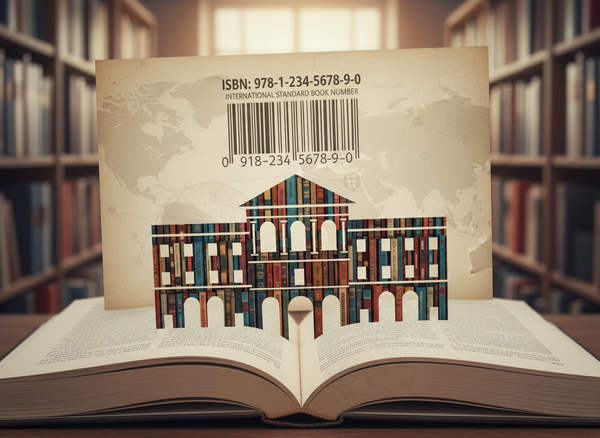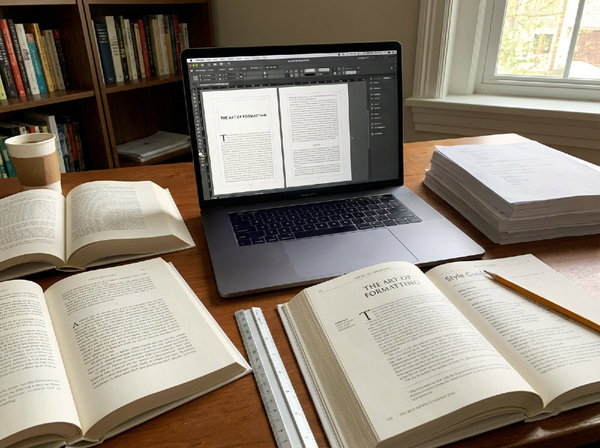AI in Publishing: Friend, Foe, or the Future?

Artificial intelligence has been slowly creeping into the publishing world for years, but in 2025 usage became bigger than ever. Scroll through BookTok and Reddit and you’ll see authors and readers protesting against AI-generated work. Check Amazon’s self-publishing marketplace and you’ll notice a flood of low-quality, machine-written titles that frustrate the audience. Truth be told, the explosion of AI content makes it really difficult for both authors and readers to navigate through all the noise. But in the same time, many indie authors quietly admit they’re already using AI tools to brainstorm, edit, or even produce affordable books.
Artificial intelligence is reshaping book publishing in ways we can’t ignore. The change is here, whether we like it or not. For some, it represents the ultimate threat: faceless algorithms churning out stories, that are sometimes repetitive and and in many cases with no substance, overwhelming marketplaces, and raising uncomfortable questions about copyright and ownership. For others, AI is a welcome ally, offering practical support with editing, formatting, marketing, and discoverability—things that have always been costly and time-consuming for self-published authors and not only.
What makes this debate so urgent is that it’s not theoretical anymore. We’re already living with it. AI is writing copy, fixing grammar, generating cover designs, summarising manuscripts, expressing opinions about how it should be marketed and powering audiobook narration. The question is no longer if it will affect publishing, but rather how we choose to use it.
This article takes a closer look at the arguments on both sides. We’ll explore why some authors see AI as a dangerous competitor, how others are embracing it as a productivity booster, and what this all means for the future of publishing. Most importantly, we’ll ask the question that matters to every writer, publisher, and reader: can AI and human creativity coexist - or will one replace the other?
The real question: "Is AI here to help or to hurt the publishing industry?"
Why Some Authors See AI as a Foe
For many writers, the rise of AI usage in publishing feels less like progress and more like an inconvenience. The fears aren’t unfounded—there are real risks and frustrations bubbling up across the industry.
Loss of authenticity
Authors connect with readers through their unique voice. This is something that AI lacks. An AI-generated book, no matter how well it mimics style and keeps tone consistent, lacks the emotional depth of a human telling their truth. Nicely said by others: "Emotion-rich narratives remain a strength of human creators". However, because of the enormous amount of AI generated content that is published nowadays, many good stories don't get to see the light of day.
Market Saturation and Discoverability
In 2023 alone, more than 2.6 million books were self-published worldwide. In 2024 there was an increase of aprox. 7%. Add the surge of AI-generated titles, and the discoverability problem only worsens. Indie authors already struggle to stand out. Many fear this could lead to a “race to the bottom,” where quality gives way to sheer volume.
Reader Trust
Finally, there’s the issue of trust. As a reader, nowadays it is increasingly difficult to find A good book. Many readers have already expressed frustration after unknowingly buying AI books. Social platforms are buzzing with calls for clearer labelling of AI content to give readers the option to read a book that is “real” or "AI generated" based on their preference. The flood of content in self-publishing is believed to potentially damage the long-term confidence in self-publishing.
How AI Is Already a Friend to Authors and Publishers
Many authors have reported that they learned AI can also be an ally. Instead of replacing creativity, AI in publishing can help reduce costs, save time, and open new opportunities that were once out of reach for independent writers.
Grammar and Proofreading Support
AI-powered tools like Grammarly, ProWritingAid, and Sudowrite offer affordable editing help for authors who might not have the budget for a professional editor at every stage. While not as efficient as human feedback - they can catch grammar slips, suggest improvements in phrasing and help with the early stage polishing that come before sending a manuscript to the editor.
Productivity and Creative Boosts
AI doesn’t have to write your book for you to be useful. AI can be used to brainstorm ideas, search for market fit, build structure or even overcome a writer's block. Many authors lean on it for these purposes while others prefer to use it for formatting, citation checks or even for creating the visual assets from the book. These aren’t replacements for human creativity. They act as accelerators — streamlining the process while allowing the book’s authenticity to shine through.
Smarter Marketing and Metadata
For self-published authors, discoverability is half the battle. And is something that most people struggle with. How can one make their work shine in the pile on millions of books that are published every year? AI can analyse keywords, suggest categories, and even generate optimised blurbs or ad copy to improve visibility on social media platforms.
In short: used wisely, AI becomes a partner rather than a rival. It handles the repetitive and technical parts of publishing while leaving authors free to focus on what only humans can do: telling stories with authenticity, voice, and emotional depth.
AI as a tool, not as an author replacement
The truth lies somewhere between the extremes. AI in book publishing is not here to dethrone authors but nor should it be dismissed. Like many technologies before it, AI works best when it supports - not replaces - the human creative process.
Authors bring something irreplaceable to the picture: lived experience, imagination, conflicting feelings and emotional depth. AI can’t replicate that spark. But what it can do is handle the repetitive, technical, and time-consuming tasks that often drain energy and increase time to market.
In this middle ground, AI becomes part of the toolkit—an assistant rather than an author. It can help polish drafts, suggest metadata, or speed up production schedules, while the writer maintains full creative control. In other words, AI doesn’t define the book’s voice or meaning; it simply clears the path so that voice can be heard more clearly. Much like Photoshop didn’t replace artists but instead gave them new ways to create, AI in publishing is shaping up to be an amplifier of human creativity.
What AI Means for the Future of Publishing
The rise of AI in publishing doesn’t just affect individual authors—it’s reshaping the entire ecosystem. From how books are written and marketed to how readers discover and consume them, the ripple effects are already visible. Looking ahead, the key challenge will be finding a balance between efficiency and authenticity.
For Authors
Authors who learn to use AI will most likely gain an advantage. They will benefit from increased productivity while maintaining their authenticity. But success will also depend on making conscious choices about where to draw the line - letting AI take over content and storyline may dilute the author’s authentic voice. In short, the future belongs to authors who treat AI as a tool, not a ghostwriter.
For Publishers
Traditional publishers are experimenting with AI in everything from slush-pile reading to marketing copy. The promise is efficiency and cost savings, but the risk is eroding trust if readers begin to feel that human touch is missing. Those who reach the right balance may realise they can bring more books to market without sacrificing quality.
For Readers
Readers crave authenticity—and if the market becomes oversaturated with formula-driven AI titles, their trust in the publishing ecosystem could weaken. The future of publishing will depend on whether the industry can deliver both efficiency and authenticity in equal measure.
PubliWrite’s Perspective on AI in Publishing
At PubliWrite, we see AI as the backbone of a powerful support system - not a replacement for human creativity. Our mission has always been to empower authors and publishers with tools that make the publishing journey smoother, without compromising authenticity.
We built tools to help authors with formatting, story structure and cover building, and we are in the process of adding more tools for grammar and phrasing editing.
In our view, the future of publishing isn’t about humans versus machines - it’s about combining the strengths of both. With AI as an assistant and authors as the creative force, we can build an ecosystem where efficiency meets authenticity, and where great stories reach readers faster than ever before.
Final Thoughts — Friend, Foe, or the Future?
This is not the end of the debate as AI in publishing is far from settled.
Today's truth is hopeful: AI is neither enemy nor saviour. It’s a tool. How we choose to use it will determine whether it strengthens or weakens the publishing ecosystem.
At the end of the day, no algorithm can replicate imagination, empathy, or lived experience. But if we use it wisely, AI can help bring more of those human stories to life - and ensure they reach the readers who need them most.





